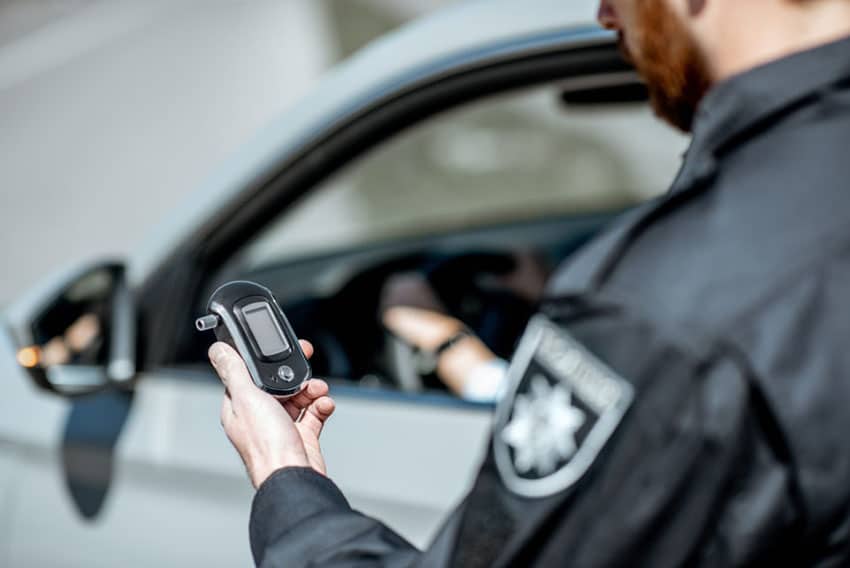Resources
Facts About Breathalyzer Tests in New York State
Traditionally, law enforcement authorities have requested that motorists suspected of intoxication perform sobriety tests, such as walking a straight line, putting a finger to the nose, or balancing on one foot. This is in order to corroborate their conclusion of intoxication of the motorist based on objective findings. In addition to any physical tests, chemical tests for intoxication are commonly used to either bolster and corroborate police opinion testimony of intoxication or, in those states that set presumptive blood alcohol intoxication levels, to demonstrate that a motorist’s blood-alcohol level exceeded the permissible level. Due to its portability, the handheld breathalyzer machine is the most common chemical testing device used to determine a driver’s blood alcohol content (BAC).

History of The Breathalyzer
The Breathalyzer was invented in 1954. It detects and measures the level of alcohol on a person’s breath with the use of a chemical reaction. A breathalyzer test kit contains several vials of chemicals of different colors that change color when they come into contact with alcohol. The color changes indicate the amount of alcohol. A breath test to measure blood-alcohol level, administered with an approved device, is required in many states for persons operating motor vehicles involved in accidents, or which are operated in violation of any traffic laws.
Breathalyzer Tests in New York State
In New York State, it is illegal to operate a vehicle with a BAC over .08. If the driver is under the age of 21, the limit is .02. New York’s implied consent law states that any person who operates a motor vehicle in the state shall be deemed to have given consent to a chemical test of one or more of the following: breath, blood, urine, or saliva, for the purpose of determining the alcoholic and/or drug content of the blood. Thus, you give consent to a chemical test simply by driving in the state.
If a person is lawfully arrested for a DWI and refuses to submit to a BAC test in New York State, they will be subjected to mandatory civil fines and driver’s license suspension. The penalties for refusing to take a BAC test are in addition to the standard penalties for DWI. Even if s suspected DWI offender is acquitted of DWI charges, they will still face a mandatory one year license revocation and $750 civil fine.
Breathalyzer tests have been upheld in the courts as not constituting unreasonable searches and seizures, although the tests may constitute a “search” within the meaning of the Fourth Amendment. The courts have generally found that a suspected DWI offender has no constitutional right to refuse to take a breathalyzer test.
Courts in New York have upheld the admissibility of breathalyzer results. In the case of People v. Singh, the court found that results of a breathalyzer are admissible in court if they present competent, reliable and probative evidence that the defendant was impaired or intoxicated when they operated a vehicle.
The attorneys with the DWI Team are experienced in handling DWI cases in Syracuse, Albany, Rochester, Watertown, Binghamton, Utica and everyone in between. If you need a lawyer who can help you obtain the best possible outcome in your DWI case, contact the DWI Team today.
DISCLAIMER: The exclusive purpose of this article is educational and it is not intended as either legal advice or a general solution to any specific legal problem. Statewide Defense with Corporate offices Central located for The DWI Team at 231 Walton Street, Syracuse, NY 13202; Telephone No.: 1-800-394-8326. Prior results do not guarantee a similar outcome.




